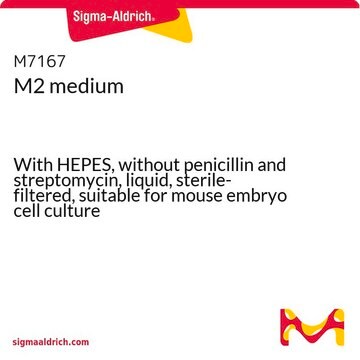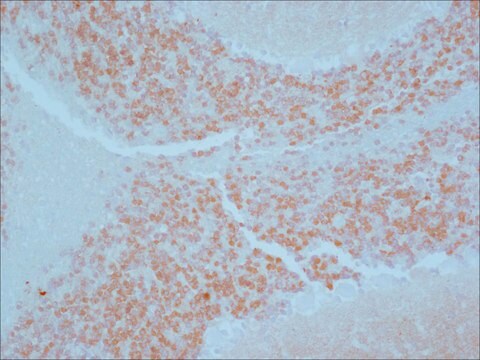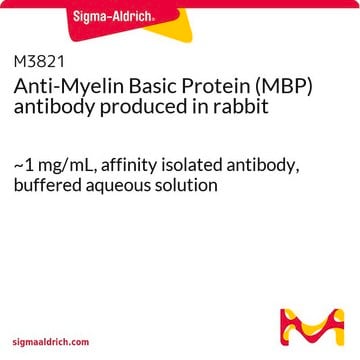C7738
Anti-β-Catenin−Cy3 antibody, Mouse monoclonal
clone 15B8, purified from hybridoma cell culture
Synonyme(s) :
Monoclonal Anti-β-Catenin
About This Item
Produits recommandés
Source biologique
mouse
Niveau de qualité
Conjugué
CY3 conjugate
Forme d'anticorps
purified immunoglobulin
Type de produit anticorps
primary antibodies
Clone
15B8, monoclonal
Forme
buffered aqueous solution
Poids mol.
antigen 94 kDa
Espèces réactives
chicken, bovine, human, canine
Concentration
~1 mg/mL
Technique(s)
direct immunofluorescence: 1:100 using methanol/acetone-fixed bovine MDBK/MCF-7 Cell Line
Isotype
IgG1
Numéro d'accès UniProt
Conditions d'expédition
wet ice
Température de stockage
2-8°C
Modification post-traductionnelle de la cible
unmodified
Informations sur le gène
human ... CTNNB1(1499)
Vous recherchez des produits similaires ? Visite Guide de comparaison des produits
Description générale
Spécificité
Immunogène
Application
- direct immunofluorescence
- western blotting
- staining
- immunohistochemistry
Actions biochimiques/physiologiques
Forme physique
Informations légales
Clause de non-responsabilité
Vous ne trouvez pas le bon produit ?
Essayez notre Outil de sélection de produits.
Code de la classe de stockage
10 - Combustible liquids
Classe de danger pour l'eau (WGK)
WGK 2
Point d'éclair (°F)
Not applicable
Point d'éclair (°C)
Not applicable
Certificats d'analyse (COA)
Recherchez un Certificats d'analyse (COA) en saisissant le numéro de lot du produit. Les numéros de lot figurent sur l'étiquette du produit après les mots "Lot" ou "Batch".
Déjà en possession de ce produit ?
Retrouvez la documentation relative aux produits que vous avez récemment achetés dans la Bibliothèque de documents.
Notre équipe de scientifiques dispose d'une expérience dans tous les secteurs de la recherche, notamment en sciences de la vie, science des matériaux, synthèse chimique, chromatographie, analyse et dans de nombreux autres domaines..
Contacter notre Service technique







